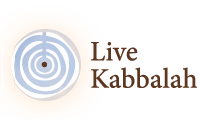Last week’s Parasha (Torah portion, story) had a messege that the book of VaYikra (Leviticus) deals mainly with the Temple sacrifices (Korbanot) that symbolize the tools to bring us close (LeKarev) to the Creator.
This weekly Parasha of “Tsav” opens with the words: “The LORD said to Moses: Give Aharon and his sons this command…” and the Zohar explains that “there is no command but idol worship (Avoda Zara)”. Meaning, whenever we react to anything and we act as being under a command, this is idol worship. Idol worship could be defined as giving something outside ourselves control over our lives, our connection to our soul and to the Light. Why?
The main purpose of Creation was to share bliss and goodness with the created beings, with us. However, we chose not to receive all of this goodness passively; we wanted to earn it via our own work and effort. We decided that we wanted to be creators as well, and by that we received the power of free will and with that came the ability to control our destiny. Hence, whenever we lose control over our life, our feelings and thoughts, we are in a state of idol worship.
Therefore, our goal is to be balanced. The Zohar explain that the holy worship of The Temple was based on three powers: Cohen, Levi and Israel – the initials CLI (כלי – vessel), and in order that a vessel should be perfect and whole, so it could accept all of the creation’s abundance, it needs to contain these three powers: “Cohen” is the power of right column – giving and sharing; “Levi” is the power of left column – the desire to receive (this is the power of Din – Judgment); “Israel” is the central column – the power of balance.
The Parasha tells us that the role of the Cohen is to make sure that “…the fire must be kept burning on the altar”. The commentators ask how come the Cohen that symbolizes the right column needs to deal with the fire that symbolizes the left column!? But apparently there are two kinds of fire (Esh, in Hebrew): Esh Zara (a fire of idol worship) and Esh Kodesh (a fire of holy worship). Whenever the power of Din controls us, as we experience anger, frustration, depression, etc., then we know that Esh Zara is burning inside us consuming and destroying us. The only way to overcome this fire is by Esh Kodesh. If there is a constant Esh Kodesh burning within us, a fire of doing for the sake of good, for our fellowman, that kind of fire would overcome and eliminate that Esh Zara. We need to arouse within us an everlasting fire and to consider us as an altar that constantly burns offerings. This inner enthusiasm will help us to overcome the Esh Zara within us and to bring us closer to the Creator.
To listen to the weekly Zohar Study click here
For additional study on Tsav and other portions enter Live Kabbalah University
